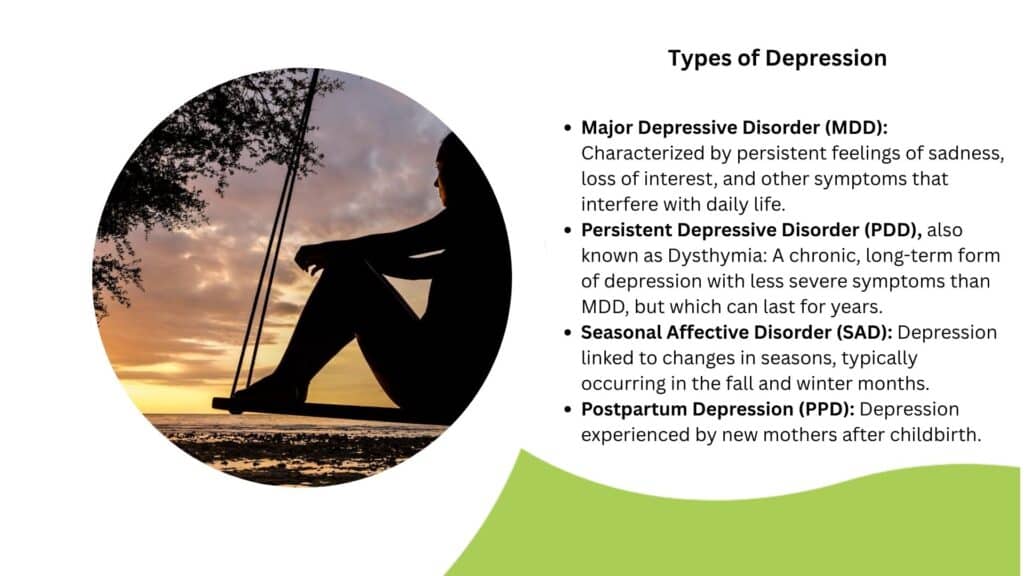
Depression is a pervasive mental health condition that affects millions worldwide. It’s more than just feeling sad; it’s a serious mood disorder that can significantly impact how you feel, think, and handle daily activities. A common question for those experiencing depression, and for their loved ones, is: “Does depression go away?” The answer, while nuanced, offers hope and highlights the importance of effective treatment.
Understanding the Nature of Depression
Depression is a complex illness with various contributing factors, including genetics, brain chemistry, life events, and personality. It’s not a sign of weakness, nor is it something you can simply “snap out of.”
There are different types of depression, such as:
- Major Depressive Disorder (MDD): Characterized by persistent feelings of sadness, loss of interest, and other symptoms that interfere with daily life.
- Persistent Depressive Disorder (PDD), also known as Dysthymia: A chronic, long-term form of depression with less severe symptoms than MDD, but which can last for years.
- Seasonal Affective Disorder (SAD): Depression linked to changes in seasons, typically occurring in the fall and winter months.
- Postpartum Depression (PPD): Depression experienced by new mothers after childbirth.

Can Depression Go Away Completely?
For many, depression can go into remission, meaning symptoms significantly decrease or disappear entirely. With effective treatment, individuals can experience long periods of wellness and a return to their regular lives. However, it’s also important to acknowledge that depression can be a recurring condition.
Think of it like other chronic illnesses such as diabetes or asthma. While these conditions can be managed effectively and individuals can lead full, healthy lives, they may require ongoing attention and, occasionally, a recurrence of symptoms. Similarly, depression may require continued management strategies, even after initial recovery.
The Role of Treatment in Recovery
The good news is that depression is highly treatable. A multi-faceted approach often yields the best results.
Professional Help is Key
Psychotherapy (Talk Therapy):
- Cognitive Behavioral Therapy (CBT): Helps individuals identify and change negative thought patterns and behaviors contributing to depression.
- Interpersonal Therapy (IPT): Focuses on improving interpersonal relationships and social functioning, which can be impacted by depression.
- Psychodynamic Therapy: Explores unconscious patterns and past experiences that may contribute to current depressive symptoms.
Medication: Antidepressants can help balance brain chemistry and alleviate symptoms. These are often most effective when used in conjunction with therapy.
Brain Stimulation Therapies: For individuals with severe depression that hasn’t responded to other treatments, options like Transcranial Magnetic Stimulation (TMS) or Electroconvulsive Therapy (ECT) may be considered.
Lifestyle Adjustments and Self-Care
Beyond professional intervention, personal lifestyle choices play a crucial role in managing depression and preventing relapse:
- Regular Exercise: Physical activity releases endorphins, which have mood-boosting effects.
- Balanced Diet: Nutrition can impact brain health and mood.
- Adequate Sleep: Poor sleep can exacerbate depressive symptoms.
- Stress Management Techniques: Mindfulness, meditation, and relaxation exercises can help reduce stress, a common trigger for depression.
- Strong Social Support: Connecting with loved ones and maintaining healthy relationships can provide a vital buffer against depressive episodes.
- Limiting Alcohol and Drugs: These substances can worsen depression symptoms and interfere with treatment.
Relapse and Long-Term Management
Even after successful treatment, there’s a possibility of depressive symptoms returning. This is not a sign of failure but rather a characteristic of the illness. Being aware of potential triggers and early warning signs can help individuals seek help promptly if symptoms begin to re-emerge.
Long-term management often involves:
- Ongoing Therapy: “Maintenance” therapy sessions can help reinforce coping skills and address new challenges.
- Medication Management: Continuing medication as prescribed, even when feeling well, can prevent relapse.
- Developing a Relapse Prevention Plan: Working with a therapist to identify personal warning signs and create a plan for what to do if symptoms reappear.
Moving Forward with Hope
While the question “Does depression go away?” doesn’t have a simple “yes” or “no” answer, it’s essential to understand that remission and significant improvement are very real possibilities. For many, depression can go into long-term remission, allowing them to lead fulfilling lives. Even for those who experience recurring episodes, effective strategies exist to manage the condition and minimize its impact.
The journey to recovery is unique for everyone, but it always begins with seeking help. With the right support and a commitment to treatment, you can navigate the challenges of depression and work towards lasting well-being.
Schedule Your Complimentary TMS Screening Today
At My TMS Therapy, we’re here to help you restore your energy and joy. Our compassionate team will guide you through every step of the process.
Call us at (877) 548-8081 or contact us online to book your screening today.
Sources:
National Institute of Mental Health. (n.d.). Depression. https://www.nimh.nih.gov/health/topics/depression
Mayo Clinic. (2023, November 16). Depression (major depressive disorder). https://www.mayoclinic.org/diseases-conditions/depression/symptoms-causes/syc-20356007
Anxiety & Depression Association of America. (n.d.). Depression. https://adaa.org/understanding-anxiety
Harvard Health Publishing. (2020, December 1). What causes depression?. Retrieved from https://www.health.harvard.edu/mind-and-mood/what-causes-depression


